|
There is no amount of punishment possible to deter someone from killing or injuring another when they perceive it as self-defense. When under the threat of bodily harm, what the law or the community will think of one’s actions later is the last thing on one’s mind. More punishment won’t work.
0 Comments
I recently read The Grace Message by Andrew Farley (2022). It goes farther and makes clearer what I already knew about the core of Christianity, yet most Christians don’t quite get it and most preachers muddy it up with a bunch of rules. Jesus ALONE saves. Our behavior plays no part. Therefore, there is no point in following a set of rules. We are dead to the law.
The book is broken into fifty-two short chapters each beginning with a story of someone with a question or objection to Farley’s message. This makes it very relatable and less abstract. Many Christians are afraid of letting go of the law, less because they are afraid they will fall into sin without it, and more because they think other Christians will. They themselves desire strongly not to do evil, yet assume that preaching rules of right living is the only thing keeping other people from spiraling into evil. Farley responds with what is almost obvious in hindsight: That sinners are quite capable of sinning with or without rules, that believers are new creations with new hearts that make them want to stop sinning, and that when a believer does sin, they soon find they regret it and cannot continue in sin. The purpose of the Law of Moses was never to be followed and achieve salvation; its purpose was only to arouse and thereby expose sin. The law is not for believers, but for unbelievers, to show them their need for a savior. The law was only a shadow of things to come (Colossians 2:17, Hebrews 10:1). Where Farley goes further is by constantly hammering the points that the work of Jesus was finished once and for all on the cross, where we died with him. We don’t have to keep asking for forgiveness (see Hebrews chapter 9). Our next sin is already forgiven. Jesus foreknew your every sin and died for you anyways, never asking for any effort on your part. We don’t have to keep “dying to self” or be disciplined or sanctified over a lifetime. It’s done. There are only two levels of righteousness: believers and unbelievers. Jesus removed our sins from us, so that we are every bit as righteous as he is. This is both imparted and imputed. The sins we commit are not part of our identities. Thus, your ambitions are not selfish. Your dreams are God-given. The Holy Spirit works through us by giving us new desires. While the Holy Spirit corrects us when we make a mistake, only Satan condemns. God does not want you out of your comfort zone; he is the one who sent the comforter! This is in part how he guides us. So many churches preach exceptions to rule-free living. Some teach that one must follow the ten commandments, others teach that one must follow the ten commandments plus tithing, and others teach that one must follow only nine of the commandments, the sabbath no longer applying to today. The problem is that nobody follows the whole law, with its rules about inheritance, diet, clothing, lending, and festivals. It’s impossible! The Temple in Jerusalem is no longer operational to take sacrifices! Besides, the law was never given to the gentiles, tithing pertained mostly to oil, grain, and meat, and today’s “priesthood” is allowed to own property and run side hustles so tithing is less necessary. Farley hypothesizes that the real reason Jesus spoke of cutting off body parts that cause us to sin, of mere thoughts being as bad as murder and adultery, and of breaking one part of the law being as bad as breaking the whole, was to make it overwhelmingly clear that there was no point in trying to live by our own efforts. Many churches take these teachings of Jesus as actual rules to be followed, but then water them down by saying the amputation was metaphorical and making a distinction between willful and unwilful sins. They justify themselves by reinterpreting the rules rather than simply admitting it can never be done without divine intervention. Churches also play word games to hide what Jesus has actually done for us. They say we have to appropriate the spirit or that we have positional righteousness, but not experiential righteousness. They say that we are saved once and for all and surely going to Heaven, yet we can still lose fellowship with Jesus or find our prayers unheard. None of this is true because Jesus now lives in us and gives us his spirit. So far, this is powerful stuff – and all true! Later in the book, Farley tackles some verses that do seen genuinely confusing. He suggests that First John is writing to both believers and unbelievers. He suggests that the warning to “examine ourselves” is about gluttony in Corinth. He suggests that the two judgements of the dead might be the same one from the same seat. He suggests that we might not have different rewards in Heaven. Finally, he suggests that “pick up our cross daily” might not be in the original Gospel, since the earliest manuscripts of Luke lack the word “daily,” as do all manuscripts of Matthew and Mark. It is at this point that I have no way of evaluating the soundness of his ideas except to say that they go against what I was always taught. Then he goes on to get into stupid arguments of semantics. He says the “flesh” is not the “self,” and that it is the flesh that makes us sin, not our selves, which have the righteousness of Christ and the identity of children of God. He says the first step to stop temptation is to tell yourself that “you” don’t need it, that it isn’t “your” thought, and that temptation isn’t “from” you, though it might “sound like” or “feel like” you. This is very confusing. Whether we call the part of us from which sin originates the self or the flesh is irrelevant. Will not a rose by any other name smell as sweet? It is certainly part of us in the usual sense, so it is not incorrect to say it is the self. Furthermore, temptations absolutely are “our” thoughts if we are the ones having them! What does it even mean to say a thought we are having isn’t a thought we are having? Who is having it if not us? And how do we know about it without also thinking about it? They are our thoughts by definition. As for where temptation comes “from,” it is hard to say, but we are unaware of it until it emerges in ourselves. When another person whispers in our ear (or uses book or television), we know where the thought came “from,” but when a thought occurs to us out of the blue, doesn’t it make sense to say it came from us BY DEFINITION? It has nothing to do with “feels like” or “sounds like” and everything to do with semantics. The bottom line is it makes no difference from where temptation comes. Resisting it is the same either way. Why is it that wearing the image on your shirt of a violent communist revolutionary like Che Guevara is considered first-amendment-protected speech, but wearing nothing but your own body – made in the image of God himself – is considered so offensive it must be made illegal?
In February, I walked the Panther Point Trail around Lake Hancock in Florida. Starting on the southern end, it follows a raised road bed overlooking the lake on one side and a series of pretty ponds on the other. There were many birds, butterflies, and alligators. In the distance, one could see the artificial mountains left over from the phosphate mines of old. Much of Polk County is like this. There was a strong breeze and intermittent shade that day, so it started off very nice. Eventually, the trail entered a wooded area. Here were cypress swamps and green puddles forming a barrier with the lake. I noticed barbed wire running along both sides of the path, much overgrown with moss. Was it to keep me out or to keep something else in? Maybe it was the balloon I saw. Was this the one the military shot down? I saw osprey, raccoons, and more alligators. At one point in the trail, I had a wonderful experience. I smelled on the breeze the exact aroma of butter popcorn Jelly Belly jellybeans. It was sort of a butterscotch smell. What was it doing in the forest? I also saw a plant with scary-looking leaves and a bunch of prehistoric-looking fish sitting on the ground. Did they beach themselves or were they thrown out after someone was done fishing? Why waste so much good fish? There was also this wooden animal that did not seem at all bothered by the fish. I should be more like this animal. Beginning to get hot and thirsty after walking for six miles, I turned back. I saw some of the same alligators in the same places and smelled the same jellybeans in the same spot again. By the time I got back to the open area, the wind had died down somewhat, the sun was brighter and hotter, and I was wild with thirst. The gator-infested pond started to look very inviting.
Time dragged on and on and on. The path seemed to grow longer the more of it I traversed. It was endless. Perhaps it was like an escalator that only went north and I was going against the current. Vultures circled overhead. What seemed like several weeks later, I got back to the car and drank three water bottles in a row. I’d like to say I learned a lesson, but I probably haven’t. I finally did it! I finally read Twelve Rules For Life by Doctor Peterson. I was already quite familiar with his thoughts from his podcasts and interviews, so it was hard to read the words with an unbiased mind. I suspect I have read into them more than is there.
One takeaway was that the chapter titles only barely fit the content. Peterson rambles quite a bit from subject to subject, as if he is attempting to put all his knowledge into one book. Another thing I noticed is how the end of one chapter tends to flow nicely into the next, the illustrations between them somehow fitting both themes equally well. The basic lessons are as follows: Stand up straight with your shoulders back. Treat yourself like someone you are responsible for helping. Make friends with people who want the best for you. Compare yourself to who you were yesterday, not to who someone else is today. Don’t let your children do anything that makes you dislike them. Set your house in perfect order before you criticize the world. Pursue what is meaningful (not what is expedient). Tell the truth – or at least don’t lie. Assume that the person you are listening to might know something you don’t. Be precise in your speech. Do not bother children when they are skateboarding. Pet a cat when you encounter one on the street. While I either learned these lessons long ago or else never had the problems in the first place, so I didn’t get a lot out of it, I believe the book can be most helpful to those who are trapped in guilt and low self-esteem. Some people bury their anger instead of dealing with problems because they think it is virtuous to do so. Some people won’t take their medication because they think they don’t deserve to get better. Some people greatly inconvenience themselves to please others, and when the others don’t recognize their efforts enough, they become resentful. Those are the people that need the book. While I think Peterson has great advice, in some areas I know it will break down. Some people have so much chaos in their lives that they can’t possibly fix it all at once. Peterson says to start small, even as small as cleaning one’s room. As one masters one level, the next will become easier. I know two problems with this plan. First, I know from experience that habits long mastered can suddenly be lost overnight. Learning them again is impossible when they have already been learned. One just has to wait for them to return – which does occasionally happen. Second, if one is to clean up their lives, they must be clean themselves. Otherwise, they will dirty what is clean even while they clean what is dirty. At best, they will move the “dirt” around. Only an outside force can save them. This is precisely why people need Jesus. This is lacking in Peterson’s plan. Another problem I have is his assumptions about status. He assumes that standing hunched over is a sign that we know we are low status. I can think of many other things it could be, such as being lost in thought. I also have trouble applying the principles to my life since there have been many times I have received mixed signals about my status and there is so much disagreement over values. There have been times I believed the world so arbitrary that concepts like status hierarchies didn’t apply. I also find his theory on the origins of evil to be lacking. It has three parts: First, he suggests that human young (like other animals) must probe the limits of their social environment by breaking the rules. This includes violence. Antisocial habits are the default and it takes continual effort to maintain culture-appropriate habits. Second, he suggests that when early humans became self-conscious, they realized their own vulnerability, especially related to the way we walk upright with our soft parts exposed. This made them anxious and looking for a way to defend themselves (including by pre-emptive strikes on others). Extrapolating, they also understood the vulnerability of others and were capable of directed torture. He relates all this to the Genesis story of Adam and Eve eating the fruit and discovering nakedness. Third, he suggests that malevolent evil (as opposed to selfish evil) arose as a way of taking revenge on God for the inadequacies of his creation. Since God cannot be reached directly, the vengeful instead attack that which God values, thus making creation even worse. Since in another part of the book Peterson defines God as that which we value above all else, this also means that the vengeful will destroy anything that reminds them of their ideal. My objections: First, studies show human young also show altruistic instincts even before they could have learned them, so bad habits being the default cannot be the whole story. Second, while humans might be more vulnerable than the average animal, there are many vulnerable animals, and all animals have some vulnerability. Why aren’t there other evil animals? Third, I also do not understand what is hoped to be gained by taking revenge on God (or anyone else), especially if it will end up furthering and adding to the same sort of problems that inspired the malevolence in the first place. If evil is caused by revenge, what causes the drive to revenge? Self-defense and deterrent punishment is understandable, but why hurt another merely because they deserve it? Other criticisms of mine were later answered, either in the book or in what I heard him say before on YouTube. When attacking the idea of charity because it is often done out of a savior complex, he takes care to warn us not to use his words as an excuse not to help. When speaking of those of high and low status, he acknowledges that there are multiple hierarchies, and those doing poorly in one might do better in another. When telling us to set our house in order before we criticize the world, he is careful to warn us not to use our continuing minor imperfections as an excuse not to act when action is necessary. On YouTube, I often only heard the first half of his thoughts, and I sometimes wish he was clearer. He also already understands part of the point of my book, When Nothing Seems To Work (which he has never read), the philosophy I call fix-it-later-ism. On page 201, he writes: “Meaning happens when that dance has become so intense that all the horrors of the past, all the terrible struggle engaged in by all of life and all of humanity to that moment becomes a necessary and worthwhile part of the increasingly successful attempt to build something truly mighty and good.” The book is full of ideas on a wide variety of subjects that I could not possibly cover in this review. You’ll have to read the book. A couple of the more interesting ones include the idea that the temptation of Jesus in the desert was to avoid setting the precedent of relying too heavily on supernatural means to win. God needed limitations for a story and we needed a relatable savior. Another is his theory of the origins of religious sacrifice. He thinks that trading with others led to trading with one’s future self by storing resources, which led to the idea of “sacrificing” effort and time now for the future to repay. This seems to me like quite the stretch and I wonder why this hypothesis is needed when a simple common sense understanding of object permanence should suffice to explain the origins of work without relating it to religious ideas at all. Why did people start putting animals on altars? Overall, five stars. Lips are the primary organs used in kissing, an activity commonly associated with romantic entanglements, yet they are not considered sexual organs. Hands may caress, and eyes may gaze, but neither hands nor eyes are considered especially sexual either. In contrast, breasts – the primary purpose of which is to nourish the young – are considered “sexual” organs.
I recently read Don’t Burn This Book by Dave Rubin (2020). I had watched his show, the Rubin Report, quite often, so I already knew a bit of what he thought of current events, but I never found a complete account of his awakening to the truth of what was really going on. How is it possible for a leftist to change? Can it be replicated? How does one become a leftist in the first place? These are questions I have never found good answers to and I hoped this book would shed some light on these issues. It did not.
Another thing he has mentioned on his show that I was led to believe would be explained in the book was his concept of “factory settings.” What this means is that we all have default worldviews (based partly on culture and the dominant media) until new evidence overturns them, but only if we are open-minded. While the term was briefly mentioned in the book, it was never explained and only the most vague examples were given. One example from the book is that socialists are generous and capitalists are greedy. To paraphrase Thomas Sowell, I have never understood why wanting to hold on to your own hard-earned money is greedy, but wanting to take money from someone else isn’t. My “factory settings” are to think of socialists as greedy. How is it possible that others have different settings? This is what I still don’t understand. One example from his show is “Republicans are for war, Democrats are for peace.” I thought this was a strange example too, since we are the same age and would have grown up during the same events. I grew up thinking that Republicans were the anti-war party. Bill Clinton got us into Bosnia and Kosovo, fired into Iraq in 1998, and bombed an aspirin factory in Sudan, and at every step the GOP claimed we had no legitimate national security interest to be involved. They cast Clinton as a warmonger. Who thinks Democrats are the party of peace? Related to both of these issues is the idea that the “mainstream media” is anti-conservative. This is something that almost every conservative says often. It is an unfortunate term, because it occludes the truth: The “mainstream” media isn’t mainstream anymore and hasn’t been for decades. Hardly anyone watches antenna television. It was replaced by cable and cable is currently being replaced by decentralized platforms across the internet. Even as CNN and MSNBC have embraced insanity, FOX has been by far the largest cable news outlet in terms of viewers. There are claims that YouTube censors content, and that might be true, but I have always had a harder time finding pro-Democrat channels than pro-Republican channels. Ben Shapiro is everywhere. Then there are claims that entertainment media pushes leftist ideas on us, and there are a few examples of this, but the reason that we talk about them is because they stand out so clearly against the backdrop of a pro-conservative storyline. If conservatism is nothing more than common sense truth and leftism is incoherent, self-contradictory garbage (exactly how conservative thinkers present it), then it is clear that conservatism dominates media, since most plots make sense. Another issue I have with Rubin (and most of those he interviews) is his use of the terms “liberal,” “leftist,” and “conservative.” Something I’ve observed in life is that such words have no agreed upon meaning. For example, conservatives tell me it is liberals that are racist, while liberals tell me it is conservatives that are racist. However, I believed there was a rough consensus that whatever “liberal” meant, it was the same thing as “leftist” and “progressive” (whatever those mean). Today, Dave Rubin, Tim Pool, Dennis Prager, and others call leftist what I used to call liberal, and call liberal what I used to call moderate, pragmatic conservativism, separating it from the barely-distinguishable idealist conservativism. Sometimes Rubin will also call himself a “classical liberal,” a term that is difficult to apply to today’s world and one that conservative commentator Rush Limbaugh also once claimed for himself. “Leftism” as Rubin defines it is not new. The average Democrat has been leftist (and not at all liberal) since before I was born. The terminology used on the show is very different than what I grew up with. It’s all very confusing. Another issue I have with Rubin is his belief that most people are not leftists, but are holding back their voices out of fear. Repeat guest Jordan Peterson says the same. This has not been my experience. I see no shortage of anti-leftist sentiment being expressed. For every woke SJW, there are ten red-pilled meme lords to mock them. The truth is everywhere. You can’t avoid it if you try. If people are still blinded by leftist lies it is only because they choose to be. They are without excuse. So far, I have been reviewing the Rubin Report rather than Don’t Burn This Book. So what is Don’t Burn This Book about? The book quickly runs over Rubin’s opinions on the big issues, such as abortion and guns. His opinions are very moderate and commonsense. Where I disagree with him is mostly because I think he has oversimplified things, rather than him being totally wrong. The book also briefly covers a few of the major hoaxes to make it into the news, such as Russian collusion, the Covington kid, and Jussie Smollett. You can’t trust the news. The book also gives some life advice, such as: Get news from multiple sources. Look up the original sources. Read books rather than blogs. Think critically. Get the full context of quotes. Don’t be afraid to admit you don’t know something. Dress like the person you want to be. Religious stories give societies cohesion. Most people need to have children to feel fulfilled. Laugh often. You can change the world, but change yourself first. Live unapologetically without compromise; be all you can be. Speak out. If the news outlet always supports one side over the other, it’s probably propaganda. Finally, he ends with the thought: “The only way to combat this crisis is to get on with our lives as if there isn’t one.” Considering the left’s eagerness to use violence and the court system’s eagerness to violate the law, I am very skeptical that “getting on with our lives” will be allowed, but I’ll concede that attempting to do so might be the least bad option. Let’s hope he’s right, because that’s exactly what I’m going to do. There live among us those who dislike chocolate, or coffee, or pickles, but we accept them and understand that we all have different tastes. There live among us people who are unusually afraid of snakes or spiders, but we recognize that we are all a bit uncomfortable around animals we can’t control. There are those among us who are creeped out by perfectly innocent clowns, but we turn around and blame the clowns for being creepy. Then there are those among us that are uncomfortable around those who openly discuss or practice homosexuality. These people are derided as hateful and prejudiced, their businesses boycotted, their jobs terminated, and their opinions censored.
I visited Circle B Bar Reserve in January of 2023. However, I saw no circles, no bees, and no bars. The park is a chaotic collection of dry grassy areas, dry wooded areas, wet grassy areas, and wet wooded areas. On the border of Lake Hancock are tall cypress trees that allow long shafts of sunlight through the hanging moss onto the cloudy water below. It has all the right combinations of hiddenness and openness that make me want to dress up like an alligator and live there. In a few places, the path runs along waterways filled with birds. I saw cormorants, ducks, anhinga, wood storks, ibises, little blue herons, great blue herons, sand hill cranes, and many others I do not know the names of. These gallinules walked right up to me. I also saw these strange-looking pieces of rubber on the sides of the path, sitting perfectly still. Did someone blow out their tires and then dump them here? I counted ten total. There were even more tires floating in the current! Who keeps littering? Finally, I saw this wooden animal with its head poking above the water. It didn’t seem bothered by the swimming tires at all. I should be more like this animal.
This is a poem I wrote in 2022. I imagine it roughly to the tune of Maria by Blondie. I see her up on stage And think of all the wars in her name I’ll wage Conquer the ants, destroy the flies But she always slips away Before I can think of what word to say I wonder how I’ll ever catch her eye Ariah, she is on fire A distant quasar burning bright Ariah, I just want to say hiya I want to know what’s on your mind She is a mystery I only know about her what I can see Spicy pepper apple pie I wonder if she’ll like this song And I wonder too if I’m doing wrong But I still have to try Ariah, she is on fire Both summer day and starry night Ariah, I just want to say hiya And ask if I can come on by Ariah, she is on fire A mythical siren in the choir Ariah, I just want to say hiya I’m hoping that you can spare some time I was busy writing books and stocking shelves part time, so I didn’t get out much last year. I did walk around the neighborhood and see some insects, a bicolor leaf, and mysterious ruins. Here are some other things I saw throughout the year:
|
AuthorMy name is Dan. I am an author, artist, explorer, and contemplator of subjects large and small. Archives
February 2023
Categories
All
|
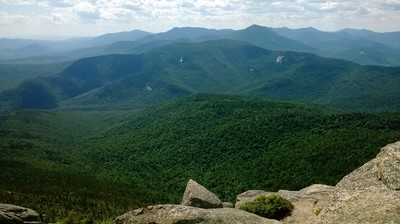




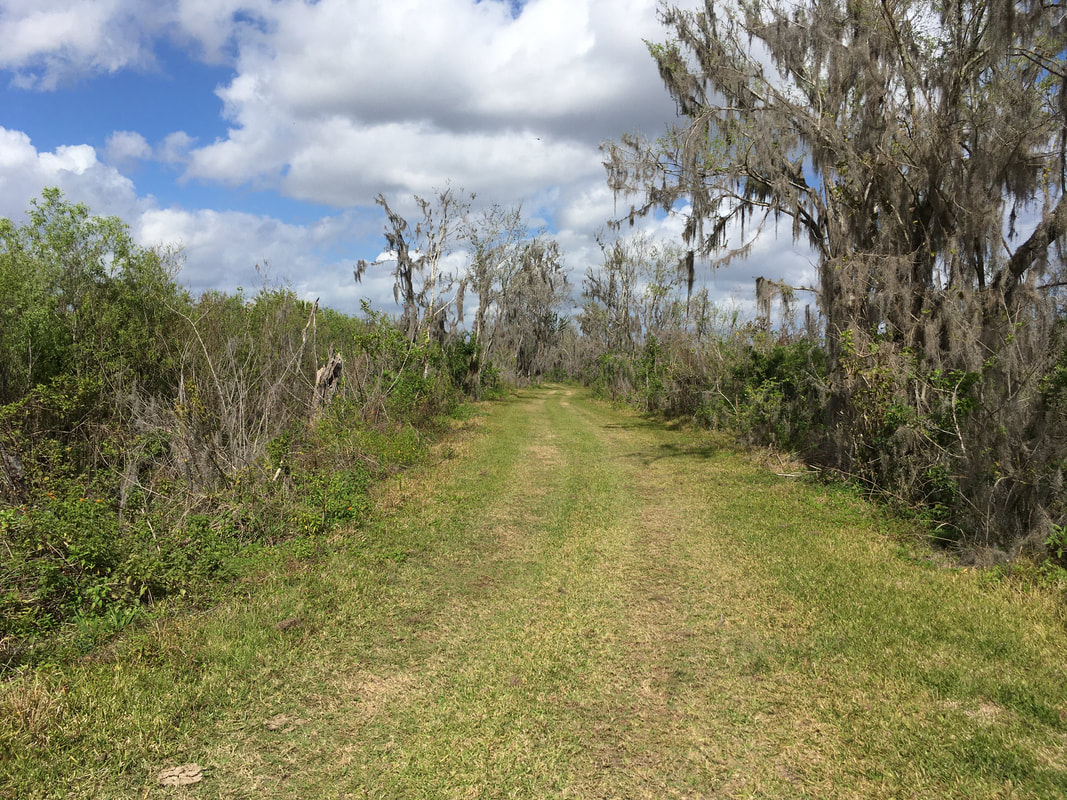








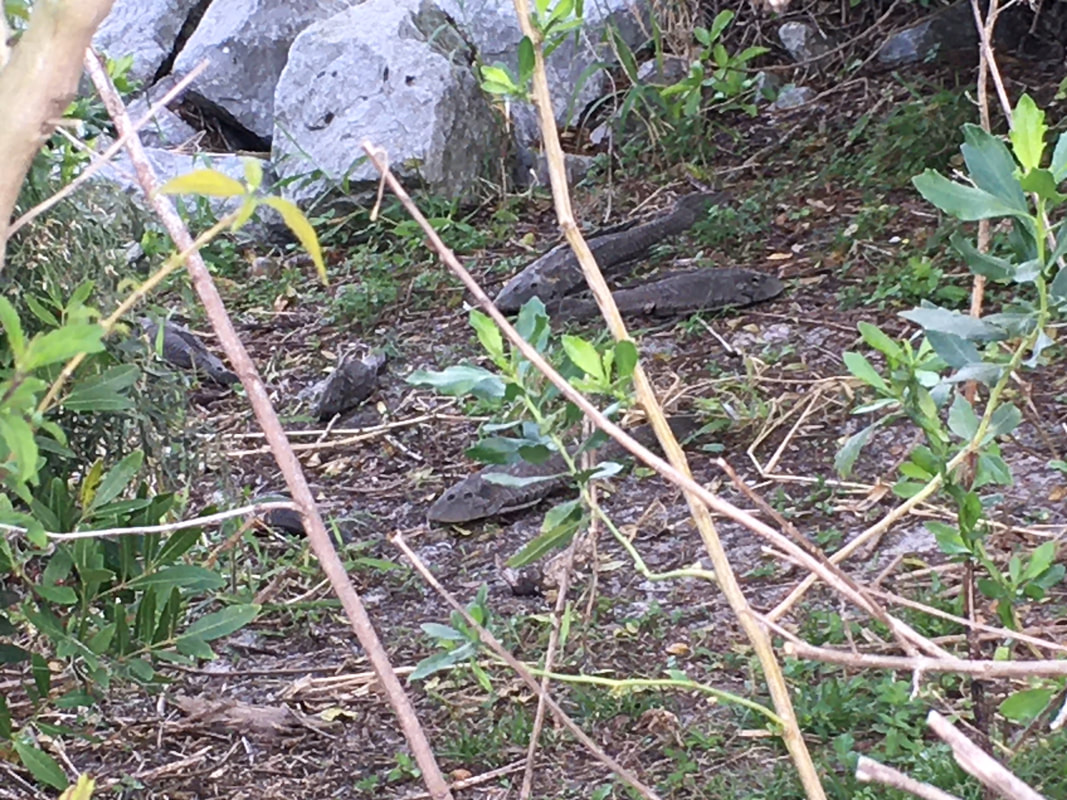



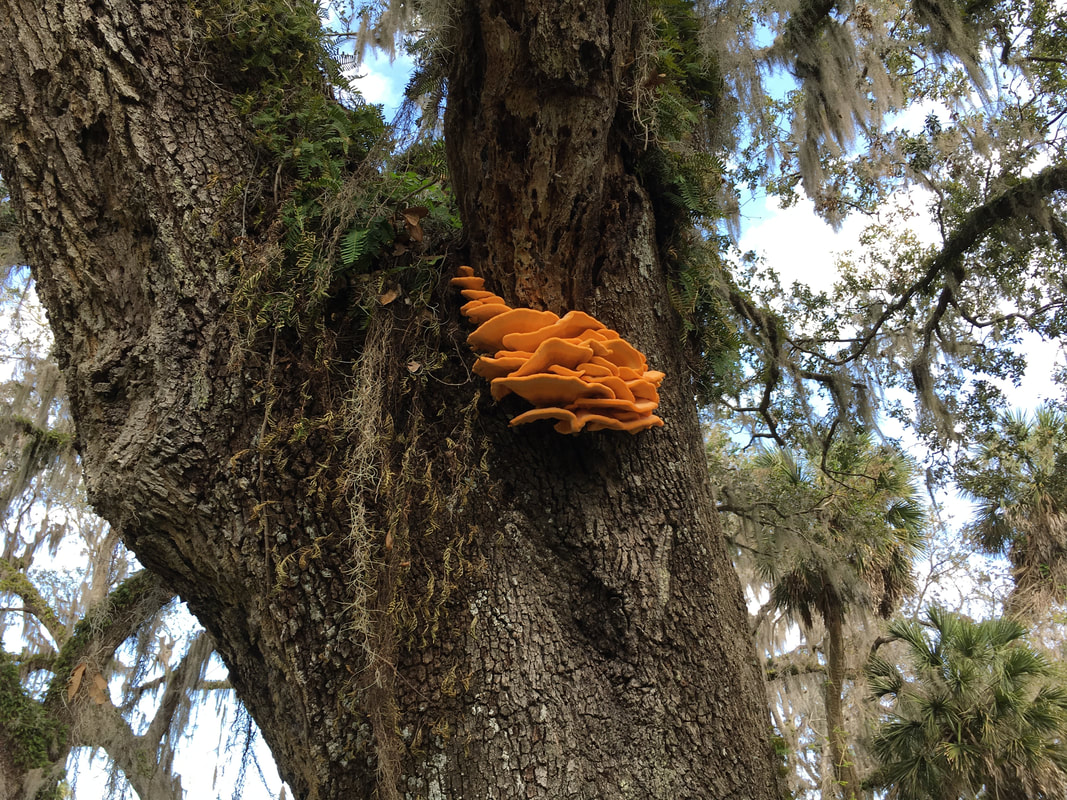
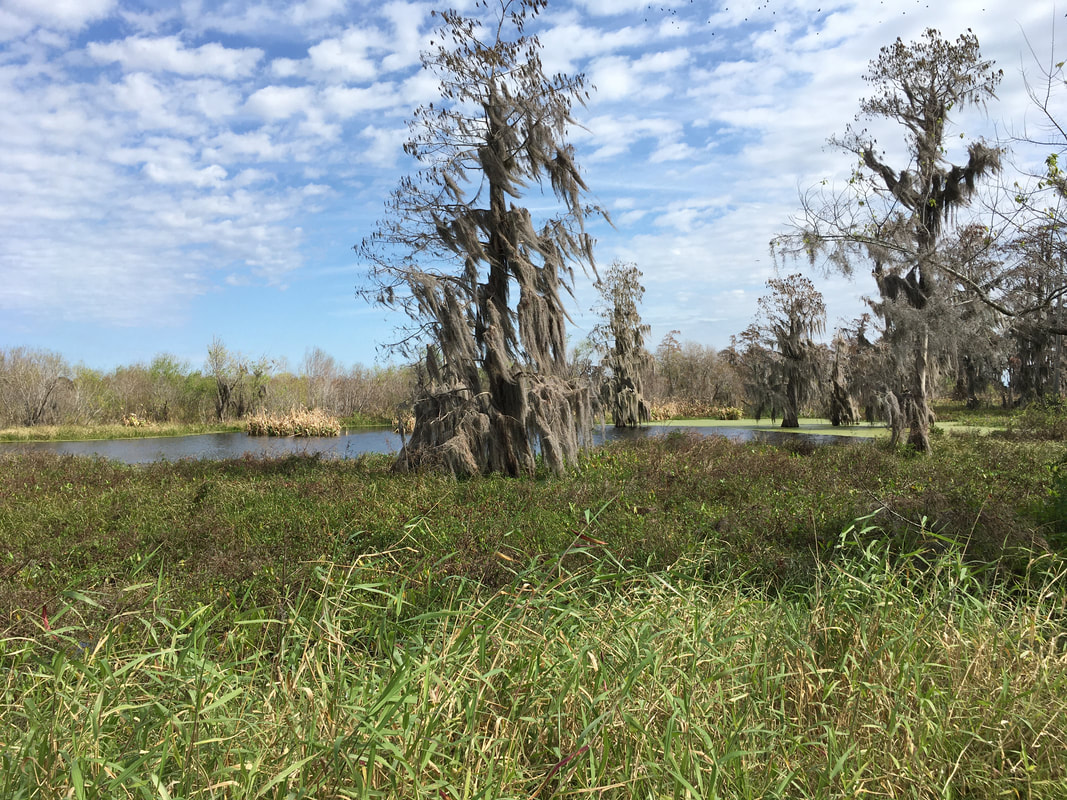

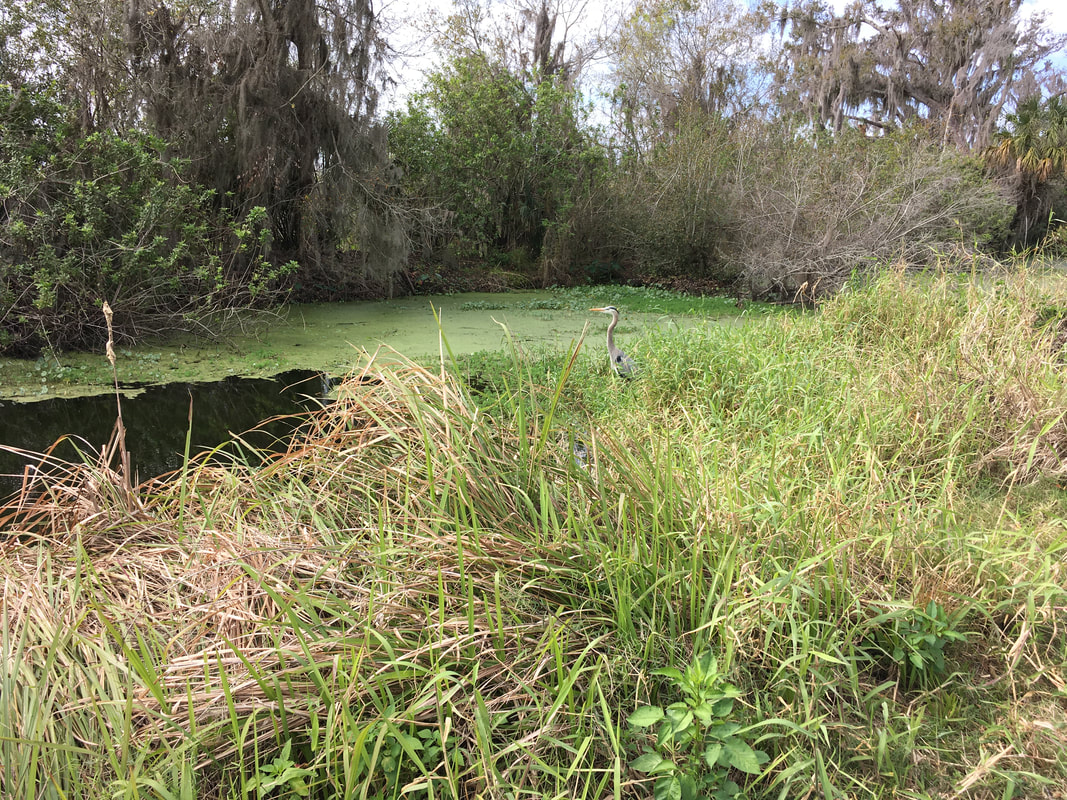

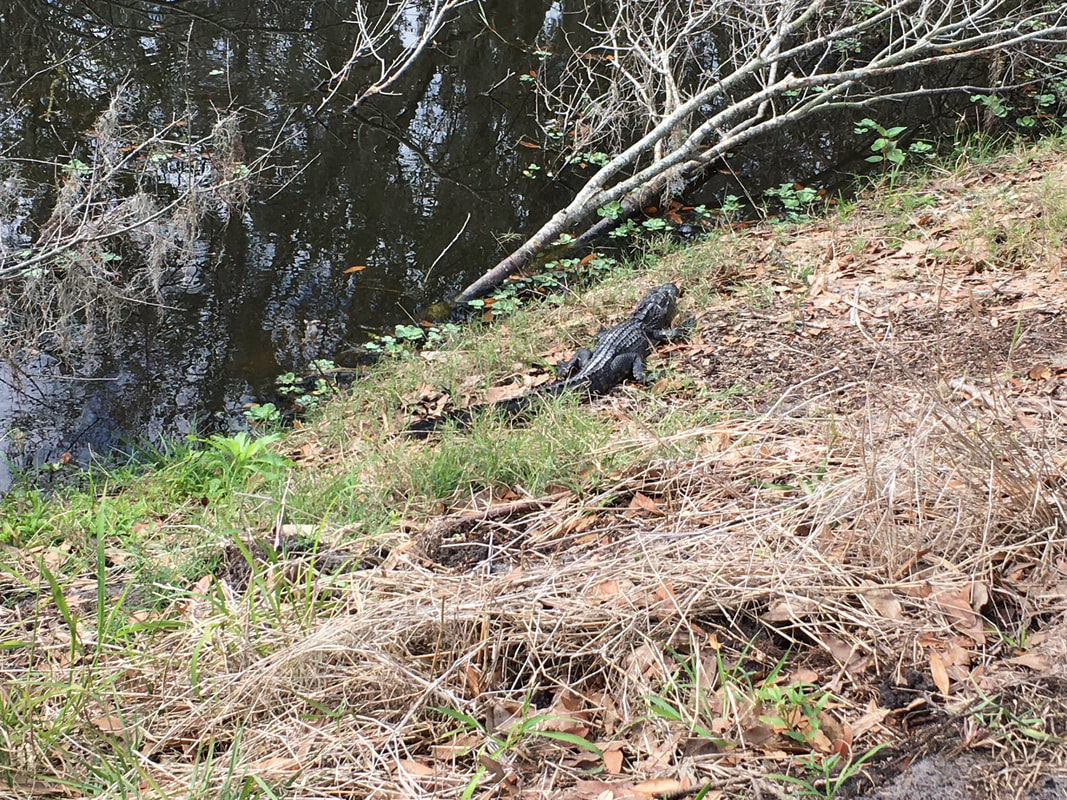
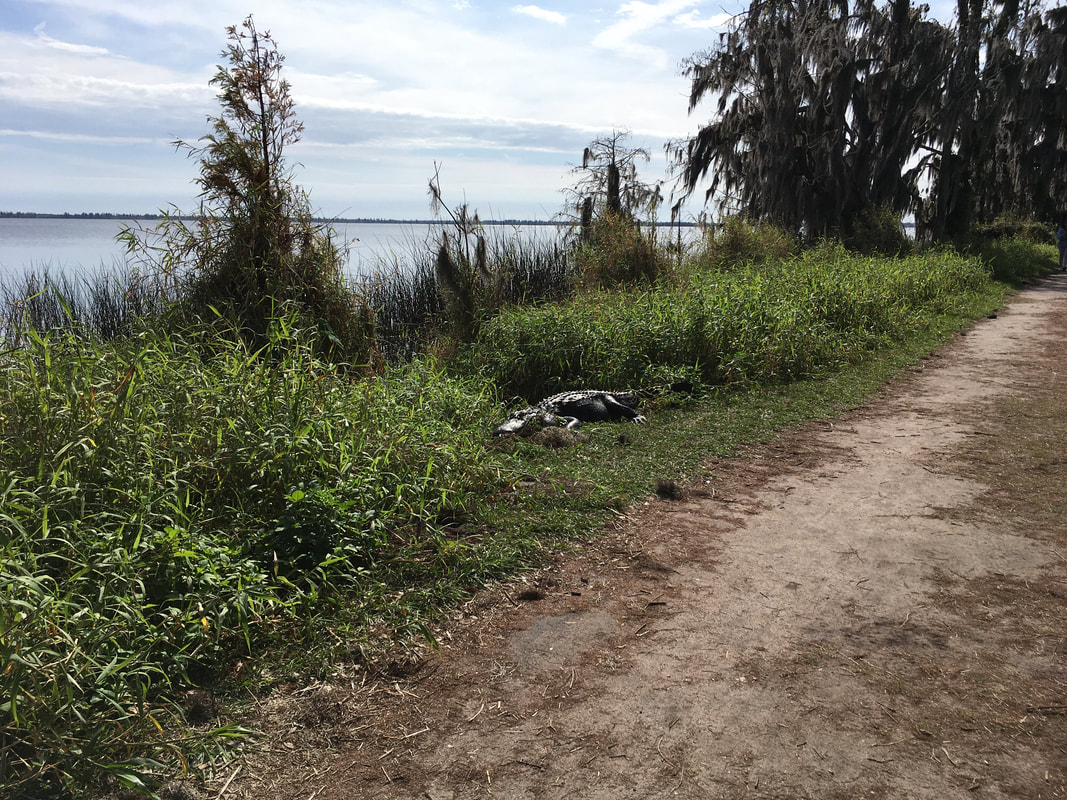
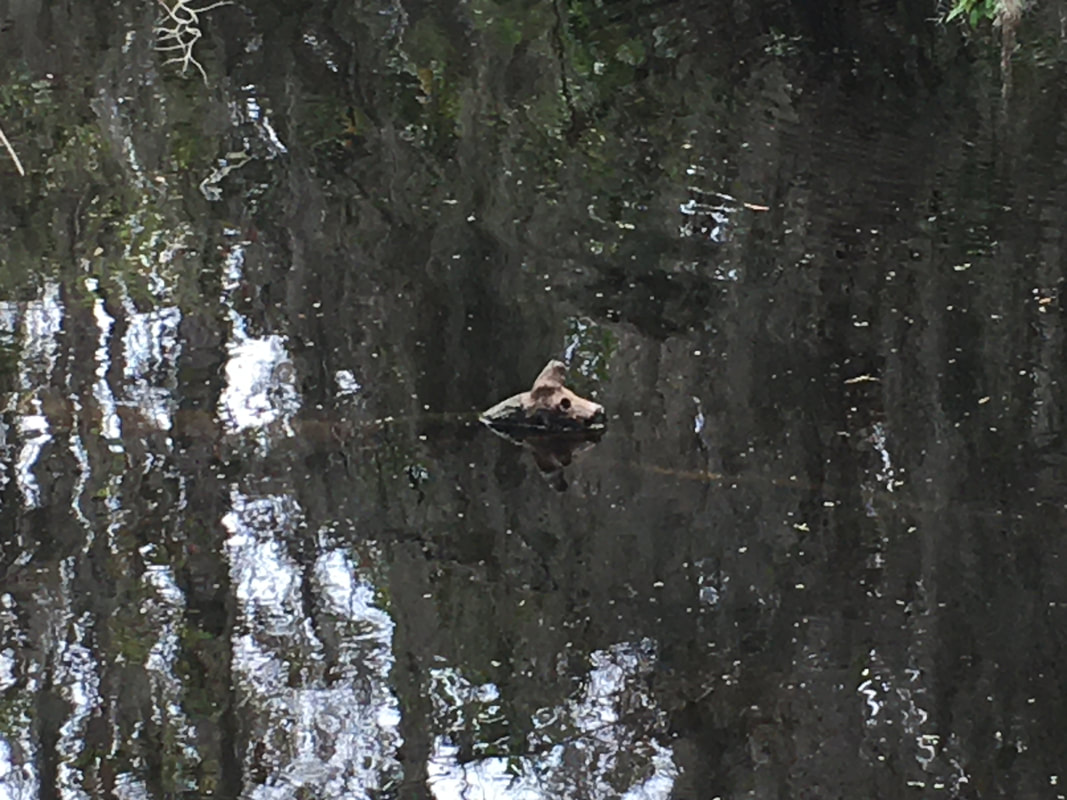
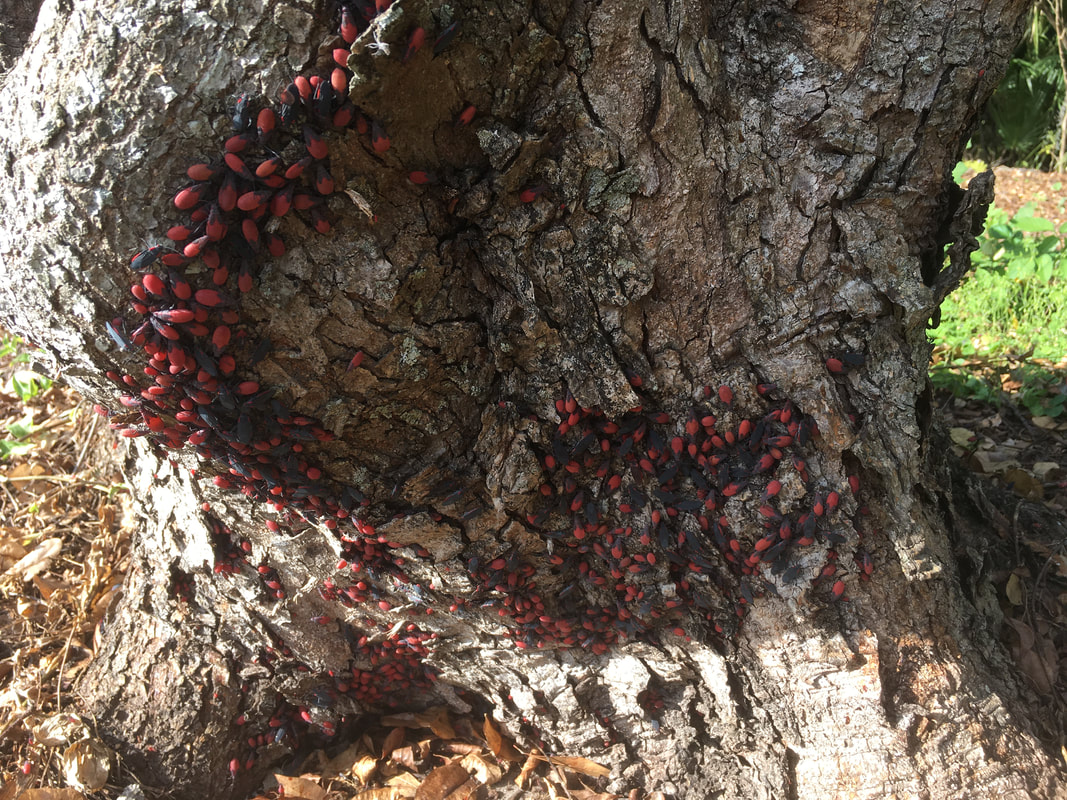
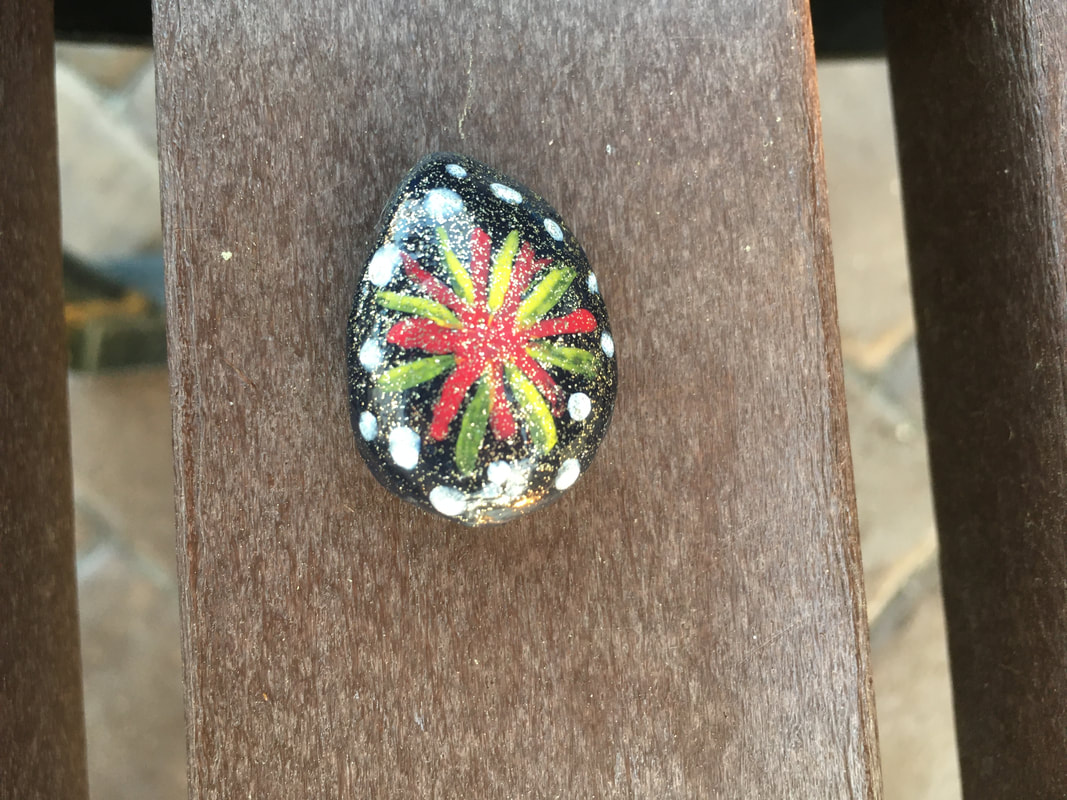


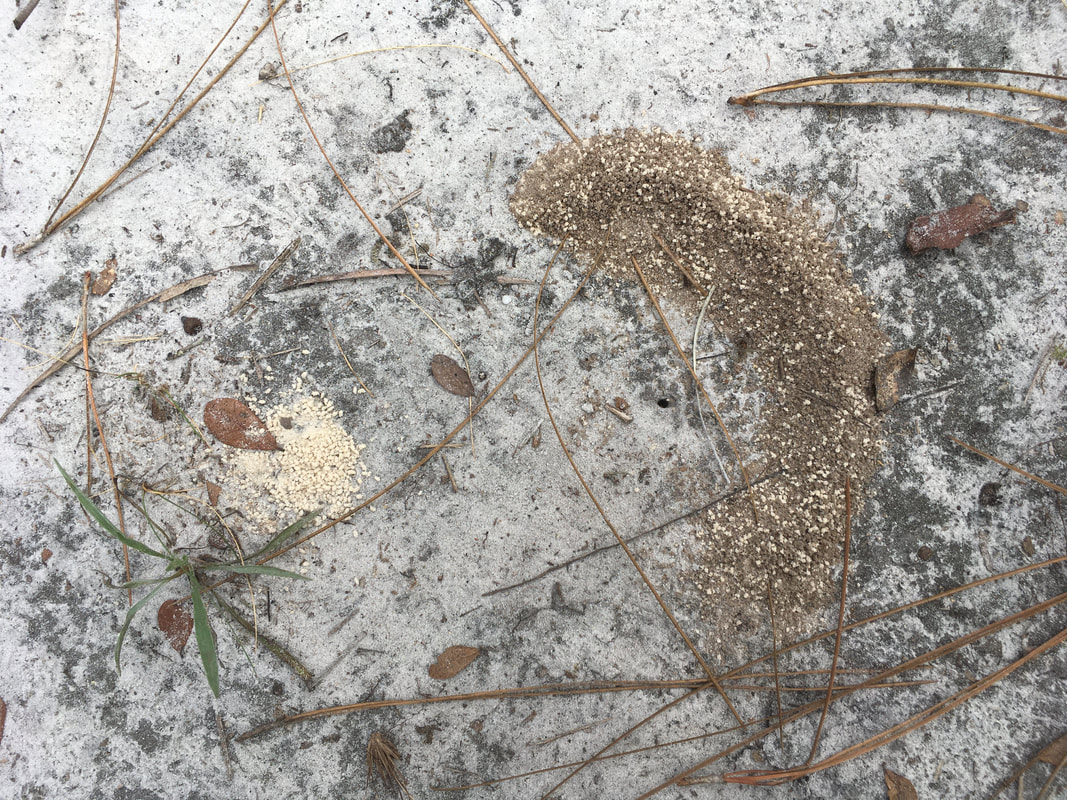









 RSS Feed
RSS Feed